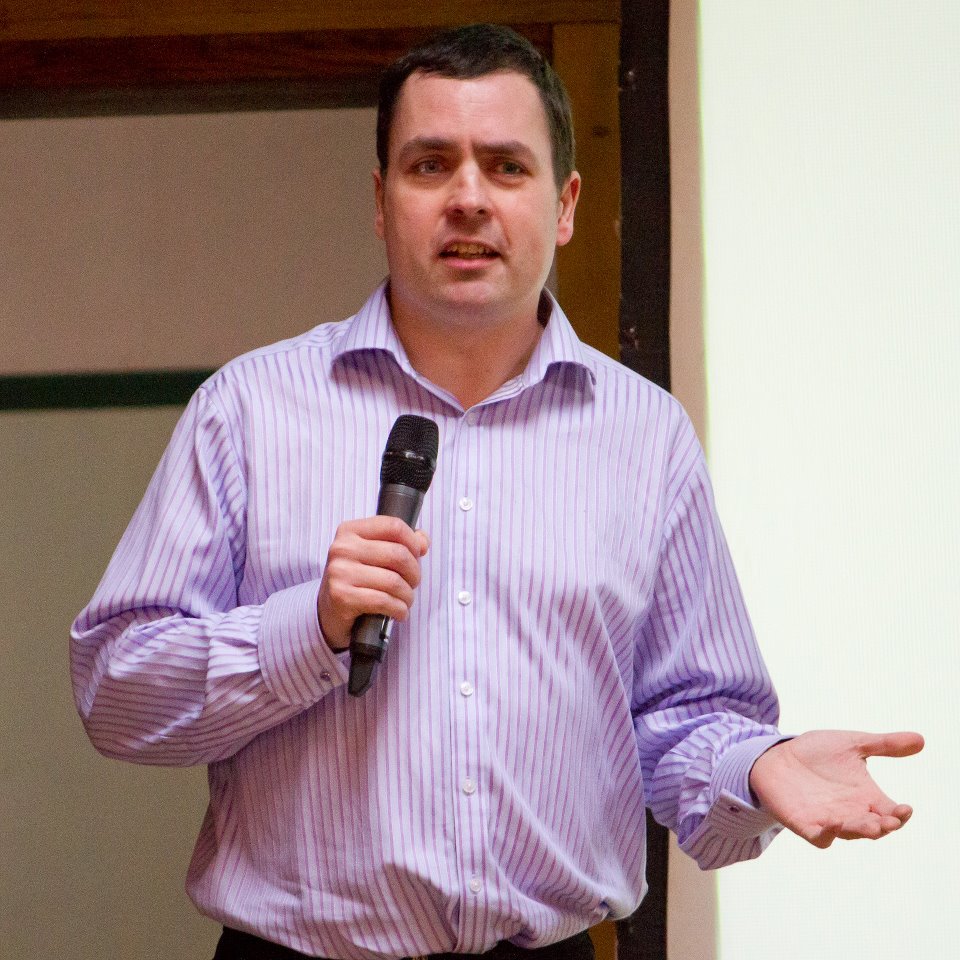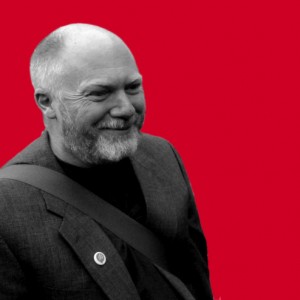Faculty 2016
Our lecturers are hand-picked for their in-depth expertise and ability to convey
their experiences to maximise the learning experience of our delegates. They also
are friendly, approachable, and able to have a good laugh! The intensive, yet
informal, atmosphere at the XML Summer School gives delegates the opportunity to
pick the brains of our expert faculty, both during the classes and afterwards over
a
meal or in the bar.
The Faculty Board operates under the stewardship of Course Director, Dr Lauren Wood.
Each year it decides on the appropriate courses and curriculum and invites the
fantastic array of experts to prepare and deliver classes.
Adam Retter | Debbie Lapeyre | Florent Georges | Gary Cornelius | Dr Jeni Tennison | Jo Rabin | Professor John Chelsom | John Snelson | Kal Ahmed | Dr Lauren Wood | Dr Martin Poulter | Dr Michael Kay | Nic Gibson | Norm Walsh | Dr Norman Gray | Paul Downey | Dr Peter Flynn | Philip Fennell | Priscilla Walmsley | Tomos Hillman | Tony Graham |
Faculty Board Members
- Debbie Lapeyre
-

Debbie Lapeyre is developer of XML Tag Sets (vocabularies) who designs and writes
the schemas (DTD, XSD, RELAX NG) that model those vocabularies. She serves as
the architect/design team member for ANSI/NISO Z39.96-2015 JATS: Journal Article
Tag Suite, which is currently the worldwide de facto standard for XML tagging of
journal articles. She performs the same roles for BITS (Book Interchange Tag
Suite), the NLM sponsored book tag set based on JATS and also for NISO STS (NISO
Standards Tag Suite), which is in development for tagging national and
international standards. As a document-oriented publishing analyst, Debbie helps
clients to analyze their information management, retrieval, and
distribution/publication requirements and translates these requirements into
functioning production systems, based on XML technologies. As a senior XSLT and
XSL-FO consultant for Mulberry
Technologies, Inc., she designs both pages and specifications for
complex XSLT transforms and stylesheets as well as develops prototype XSLT
applications. Ms. Lapeyre has been working with XML, XSLT, and XPath since their
inception and with SGML (XML’s predecessor) since 1984. She is a member of the
XML Guild and a co-chair of Balisage: The Markup Conference, She has
previously co-chaired “Extreme Markup Languages”, “Markup Technologies”, and the
annual international “SGML/XML’XX Conference”. Debbie teaches XML, XSLT, XSL-FO,
Schematron, What-is-XML-and-Why-Should-You-Care, and XML print workflows at
venues all over the English-speaking world.Debbie teaches in the Hands-On Introduction to XML course.
- Professor John Chelsom
-

John is the XML Summer School Symposiarch. He founded the Summer School with
colleagues from CSW in 2000 and has taught every year since.John chairs the Hands-On Introduction to XML course and the XML Primer course and teaches in the Hands-On Introduction to XML course and the XML Primer course.
- Dr Lauren Wood
-

Lauren Wood is an independent consultant, with a focus on standards-based
healthcare, XML publishing, and the web. Her wide-ranging experience includes
roles as product/program manager, technical analyst, facilitator, and quality
checker, depending on the needs of the project.Most recently she was Senior Product Manager for Design Science, Inc,
concentrating on the MathFlow suite of mathematical typesetting and rendering
products. Before that, she was a consultant in healthcare standards with the
Lantana Consulting Group. While with Sun Microsystems she was program manager
for an innovative cloud+mobile project that had many of the features of today’s
smartphone systems, as well as representing Sun in the Liberty Alliance, and
working on other identity and privacy-focussed projects. As Director of Product
Technology for SoftQuad, she had significant input into SoftQuad’s XMetaL XML
editor. She chaired the US XML Conference from 2001 to 2005, chaired the W3C DOM
Working Group from its inception to the end of Level 2, and played an active
role in many other OASIS and W3C technical committees.Lauren has been a Faculty member of the Summer School since the beginning. She
occasionally blogs on issues
technical and otherwise.Lauren chairs the Hands-on Digital Publishing course and the Trends and Transients course and teaches in the Hands-on Digital Publishing course.
- Norm Walsh
-

Norman Walsh is a Lead Engineer at MarkLogic Corporation where he helps to
develop APIs and tools for the world’s leading enterprise NoSQL database. Until
recently, Norm has also been an active participant in a number of standards
efforts worldwide: he was chair of the XML Processing Model Working Group at the
W3C where he was also co-chair of the XML Core Working Group. At OASIS, he was
chair of the DocBook Technical Committee for many years.With two decades of industry experience, Norm is well known for his work on
DocBook and a wide range of open source projects.He is the author of DocBook: The Definitive Guide.Norm teaches in the Hands-on Digital Publishing course and the XML in Publishing course.
- Dr Peter Flynn
-

Peter Flynn has over 30 years experience in IT and information management. He
currently manages the electronic publishing unit at University College Cork, and
also has his own text management consultancy, Silmaril Consultants, where he works mainly with industrial production
and research systems.Peter was a member of the W3C’s XML Special Interest Group and a member of the
IETF’s Working Group on HTML. He is maintainer of the XML FAQ and author of The World-Wide Web
Handbook (ITCP, 1995) and Understanding SGML and XML Tools (Kluwer, 1998). He
has recently been researching the usability of editors for structured documents.In what’s left of his time he likes to cook, surf, read, and listen to early
music.Peter chairs the XML in Publishing course and teaches in the Hands-on Digital Publishing course.
- Philip Fennell
-

Philip Fennell is a MarkLogic Consultant who is never happier than when he’s
slaving over a pot of hot XSLT, although now he’s loving his XQuery too.
Originally trained in the printing industry, he worked as an applications
specialist, GUI designer and technical author before finding a happy home
specializing in XML and its related technologies. Since turning web developer in
2000 he has had the opportunity to work in the domains of Content Management,
Publishing, Document Processing and the Semantic Web.Previously Philip has blogged for the O’Reilly Community http://www.oreillynet.com/pub/au/3413 and has been involved in the
W3C’s XForms Working Group.Philip chairs the Linked Data course and teaches in the Linked Data course.
- Priscilla Walmsley
-

Priscilla Walmsley is a senior consultant and managing director at Datypic,
specializing in XML architecture and implementation. She is an expert in XML
core technologies (XQuery, XSLT, XML Schema), content management and
service-oriented architectures.Priscilla was a member of the W3C XML Schema Working Group from 1999 to 2004,
where she served as an Invited Expert. She is the author of Definitive XML Schema
(Prentice Hall PTR, 2001), and XQuery (O’Reilly Media, 2007). In addition, she co-authored Web Service Contract
Design and Versioning for SOA (Prentice Hall 2008).Priscilla chairs the XSLT and XQuery course and teaches in the XSLT and XQuery course.
Faculty Members
- Adam Retter
-

Adam Retter is both an independent consultant and a co-founder of eXist Solutions GmbH. Adam has been
working with XML technologies and contributing to eXist since 2005. He has almost 15 years
of experience in building Web Applications and Distributed Application
Architectures. Adam has worked with many different technologies and programming
languages in the past, but has been particularly enjoying XQuery and Scala over
the last few years. Adam is passionate about Open Source and Open Standards. As
such he is an invited expert on the W3C XQuery Working Group and sits on the
peer-review panels of the XML Prague, Balisage, and XML London conferences. Adam also
founded the EXQuery project in early 2009,
and has since been working with the XML community and as part of the EXPath project to standardise and improve
XML application development with XQuery, XSLT and XPath.Adam’s homepage is at http://www.adamretter.org.uk
Adam teaches in the XSLT and XQuery course.
- Florent Georges
-

Since Florent discovered IT back in
the 90’s, he has always been fascinated by how data are stored and represented.
He naturally came to XML, but also to RDF and Semantic Technologies.Florent contributed to many open-source and community-driven projects in the
field of XML. His main interests are in the field of XSLT and XQuery extensions
and libraries, packaging, unit and functional testing, and portability between
several processors. But it is only with the advent of NoSQL technologies and
transactional triplestores that Florent started to consider using Semantics and
the flexibility of its data model in commercial projects.Florent is an invited expert in the XSLT
working group at W3C, since 2009. Florent founded EXPath the same year,
and is also the chair of the EXPath
community group at W3C, defining “standard” extension function libraries
that can be used in XPath (so in XSLT, XQuery and XProc as well). Florent and
H2O Consulting are members of the XML Guild, “a consortium of some of the best independent XML
consultants in the world.” He worked for two years for MarkLogic, the
“Enterprise NoSQL Database”, helping many of their clients with their data
projects and challenges.H2O Consulting website is at http://h2oconsulting.be/. Florent is currently working as a Semantic
Data Architect, helping a leading banking group in Paris defining their new data
management strategies and systems.Florent teaches in the XSLT and XQuery course.
- Gary Cornelius
-

Gary Cornelius is the founder of Rapport Network
CIC, which is an established Community Interest Company that produces
assisted living applications for early-stage dementia and for people with other
cognitive impairments who find it challenging to live independently. Gary has
experience of IT consultancy and development for the NHS, with a particular
interest in health informatics, middleware systems, and the Internet of Things.Gary is an experienced XML consultant and solutions architect. Gary has been an
active contributor to XML mailing lists and standards for over a decade and
enjoys technical project management involving XML. He studied publishing,
graphic communication management, and digital imaging.Gary was involved with the engineering of many XML based innovations and products
over the years such as XML base databases, CMS systems, Electronic Health
Records Systems, application performance managements systems, various multimodal
user interface systems and several knowledge management and decision support
systems. He has developed several XML and web related training courses for IT
engineers and managers.In 2002 Gary was a delegate attending the XML Summer School and for the following
years he has returned as a speaker and instructor.Gary teaches in the Hands-On Introduction to XML course.
- Dr Jeni Tennison
-

Jeni Tennison is the Technical Director of the Open Data Institute. She
originally trained as a psychologist and knowledge engineer, gaining a PhD in
collaborative ontology development from the University of Nottingham. She went
on to work as an independent consultant and practitioner, specialising in open
data publishing and consumption, including XML, JSON and linked data APIs,
before joining the Open Data Institute in 2012. She was awarded an OBE for
services to technology and open data in the 2014 New Year Honours.Before joining the ODI, Jeni was the technical architect and lead developer for
legislation.gov.uk, which pioneered
the use of open data APIs within the public sector, set a new standard in the
publication of legislation on the web, and formed the basis of The National
Archives’ strategy for bringing the UK’s legislation up to date as open, public
data.Within the wider UK public sector, Jeni worked on the early linked data work on
data.gov.uk, helping to engineer new
standards for the publication of statistics as linked data; building APIs for
geographic, transport and education data; and supporting the publication of
public sector organograms as open data. She continues her work within the UK’s
public sector as a member of the Open Standards
Board.Jeni has contributed to several international standards through the W3C, working
on XSLT and XPath 2.0 within the XSL Working Group and on XProc within the XML
Processing Working Group. She was appointed by Sir Tim Berners-Lee to serve on
the W3C’s Technical Architecture Group
from 2011 to 2015, during which time she chaired the W3C’s HTML Data Task Force.
In 2014 she started to co-chair the W3C’s CSV on the Web Working
Group. She also sits on the Advisory Boards for the Open Contracting Partnership and
the Data Transparency Lab.[Photo and content from http://www.theodi.org/people/jeni]
Jeni teaches in the Trends and Transients course.
- Jo Rabin
-

Jo calls himself a CTO-at-large and divides his time between being
CTO-in-Residence at Wayra London (Telefonica’s start-up accelerator), an Adjunct
at UCL, where he is helping construct an Executive MSc, as advisor to various
companies and solving some of the problems of Copyright on the Internet. He is
co-founder and director of Mobile Monday London and The Mobile Academy.His past is a journey through the dawns of microprocessors, email and mobile,
chairing three W3C mobile-related Groups and editing numerous W3C notes and
recommendations. He invented NewsML, the industry standard for news interchange,
and has been CTO at a number of start-up companies.Jo teaches in the Trends and Transients course.
- John Snelson
-

John Snelson is a Lead Engineer at MarkLogic where he works on the Server
Development team. John has spent the last 11 years working with XML, and 9 years
working on databases like Oracle’s Berkeley DB XML and MarkLogic. He is a member
of the W3C XQuery Working Group and the W3C XSLT Working Group, and co-editor of
a number of XQuery specifications. He has worked on language implementations of
XQuery, XSLT, and most recently SPARQL, and on database transactions, indexes,
and compression.John teaches in the Linked Data course.
- Kal Ahmed
-

Kal Ahmed is founder of NetworkedPlanet, a software house specializing in standards-based
knowledge and content management solutions for Microsoft platforms. In previous
jobs he has worked for Xerox in XML document management systems; for Ontopia in
developing and deploying Topic Maps-based solutions; and as an independent
consultant with a focus on XML, Topic Maps and RDF.Kal is a contributor to dotNetRDF, an
open-source platform for RDF-based applications that use the Microsoft .NET
framework; and to BrightstarDB, an
open-source RDF triple-store for .NET as well as playing around in a few other
interesting applications in linked data over on github (github.com/kal and github.com/brightstardb). What is
left of his spare time is now entirely consumed by photographing and playing roller
derby.Kal teaches in the Linked Data course.
- Dr Martin Poulter
-

Dr Martin Poulter is a Lead Trainer for Wikimedia UK, the national charity
supporting Wikipedia and its sister projects, and provides customised training
for the university sector on working with free knowledge projects.Since 1997, Martin been the Web Developer and IT Manager for the Economics
Network family of sites, which are based at the University of Bristol. He was
the (only ever) Wikimedia Ambassador for the educational charity Jisc and wrote
the Jisc guide on
Crowdsourcing. He created the EduWiki Conference and the Wikipedia
Science Conference.Martin teaches in the Trends and Transients course.
- Dr Michael Kay
-

Dr Michael Kay is the founder and technical director of Saxonica Limited, which
develops both the open source and commercial variants of the Saxon XSLT and
XQuery processor, as well as offering XML-related consultancy services.Michael
is an invited expert on the W3C working groups developing XSLT, XQuery, and XML
Schema. In particular he is the technical lead on the XSL Working Group, which
is currently developing a new version of the language to handle streaming
transformations of large documents. He is also the author of the definitive
reference book on XSLT 2.0, and has written numerous articles and conference
papers on XSLT, XQuery, and related technologies. He is a member of the XML Guild, a group of leading independent
XML consultants, and joint winner of the XML Cup in 2005, awarded for
contributions to the XML community.Dr Kay spent nearly 25 years with the British computer manufacturer ICL (later
Fujitsu) where he designed and implemented a wide range of data management
software products; appointed an ICL Fellow, he was also responsible for advising
the company’s senior management and customers on technology strategy. He gained
his Ph.D. at the University of Cambridge for research on database management
systems, studying under Maurice Wilkes. Michael lives in Reading, England, 25
miles down the road from Oxford.Michael teaches in the XSLT and XQuery course.
- Nic Gibson
-

Nic Gibson is an independent consultant, working on XML and digital publishing
technologies for a variety of publishers and organisations that publish. He
specialises in advising publishers on suitable uses of XML and the
implementation of complex transformation pipelines using XSLT and XProc. He also
provides XML and XSLT training to his clients and on public courses.Nic has spent most of the last two years working for LexisNexis UK as Lead
Content Architect, leading a team of content architects and developers who
manage the schemas and transformations used to publish tens of thousands of
legal precedents to the web and print.Nic teaches in the XML in Publishing course.
- Dr Norman Gray
-

Norman Gray is in the School of Physics and Astronomy at the University of
Glasgow. Over the last few decades he’s been a particle physicist, a solar
physicist, and worked on gravitational lensing. In software terms, he spent a
number of years working on data-reduction software for astronomy, on the
standardisation of the VIrtual Observatory, and on ‘big science’ data
preservation.Norman teaches in the Hands-on Digital Publishing course.
- Paul Downey
-

Paul Downey is a Technical Architect with the Government Digital Service,
building Gov.UK. Formerly he was a member of Osmosoft, a small Open Source Innovation team
at BT, where he contributed to a number of Open Source projects, notably
TiddlyWiki. He participated in the standardisation of XML and Web services at
the W3C, WS-I and OASIS. Paul likes to evangelise the value of REST and the Web
through code, presentations and uber-doodles such as the mildly notorious The Web is Agreement.Paul teaches in the Trends and Transients course.
- Tomos Hillman
-

Tom is an independent consultant and director of eXpertML Ltd, offering
consultancy on publishing with XML, training, and freelance expertise in XSLT
and related technologies.Until very recently he was a Senior Data Engineer for Oxford University Press,
where he was responsible for the design and maintenance of custom data models
for books and legal materials. His job role included XML processing, supplier
documentation, and quality control systems. He also advised on digital workflows
and strategy, and writes and delivered internal training.Tomos teaches in the XML in Publishing course.
- Tony Graham
-

Tony Graham is a Senior Architect with Antenna House, where he works on their XSL-FO and CSS
formatter, cloud-based authoring
solution, and related products. He also provides XSL-FO and XSLT
consulting and training services on behalf of Antenna House.Tony has been working with markup since 1991, with XML since 1996, and with
XSLT/XSL-FO since 1998. He is Chair of the Print and Page Layout Community
Group at the W3C and previously an invited expert on the W3C XML Print
and Page Layout Working Group (XPPL) defining the XSL-FO specification, as well
as an acknowledged expert in XSLT. Tony is the developer of the ‘stf‘ Schematron testing
framework and also Antenna House’s ‘focheck‘ XSL-FO
validation tool, a committer to both the XSpec and Juxy XSLT testing
frameworks, the author of “Unicode: A Primer”, and a qualified
trainer.Tony’s career in XML and SGML spans Japan, USA, UK, and Ireland. Before joining
Antenna House, he had previously been an independent consultant, a Staff
Engineer with Sun Microsystems, a Senior Consultant with Mulberry Technologies,
and a Document Analyst with Uniscope. He has worked with data in English,
Chinese, Japanese, and Korean, and with academic, automotive, publishing,
software, and telecommunications applications. He has also spoken about XML,
XSLT, XSL-FO, EPUB, and related technologies to clients and conferences in North
America, Europe, Japan, and Australia.Tony teaches in the XML in Publishing course.